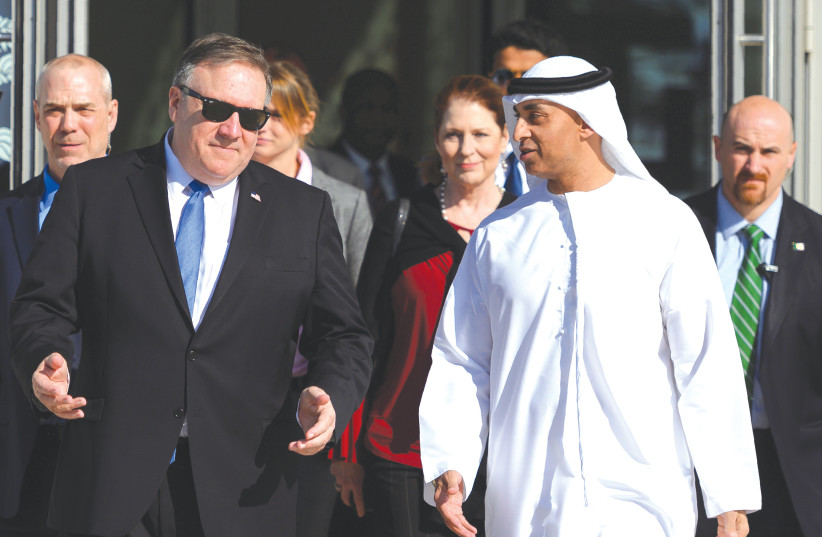The United Arab Emirates may have attempted to manipulate US politics in favor of the Gulf state's interests, according to a classified report compiled by US intelligence officials, The Washington Post reported on Saturday.
The UAE is considered a close and friendly ally to the US, with the US State Department calling the country a "key partner" and lauding "strong bilateral cooperation on a full range of issues including defense, non-proliferation, trade, law enforcement" and more.
The US has sold the UAE F-35 fighter jets, Patriot batteries, Javelins and THAAD missiles, among a slew of over $29.3 billion in military equipment sales.
Through both illegal and legal measures, the UAE worked to exploit vulnerabilities in the US political system, including reliance on campaign contributions, powerful lobbying firms and lax enforcement of disclosure laws.
Three sources familiar with the report, which was compiled by the National Intelligence Council, told The Washington Post that it was briefed to US policymakers in recent weeks to guide their decision-making on issues concerning the Middle East.

Over $154 million has been spent by the Gulf state on lobbyists since 2016, according to Justice Department records.
Some Emirati influence operations were 'more similar to espionage'
While some of the influence operations have intensified due to an unwillingness to reform foreign-influence laws or strengthen the Justice Department, other activities conducted by the UAE were more similar to espionage, according to the report.
One of the influence operations detailed in the report involved the hiring of three former US intelligence and military officials to help the UAE surveil dissidents, politicians, journalists and US companies.
Last year, the three admitted to the scheme and paid over $1.68 million for providing hacking services to the Emirati government, according to the Justice Department, which called the case a "first-of-its-kind."
Additionally, in May, an indictment was filed against Thomas Barrack, a friend of former president Donald Trump, claiming that he had sought millions of dollars in investments from the UAE while illegally lobbying the Trump Administration on behalf of the Gulf state. Barrack was acquitted of the charges earlier this month.
While the new intelligence report did not identify specific individuals, it does mention several meetings and conversations involving US and Emirati officials.
New report is unusual in its focus
Bruce Riedel, a senior fellow at the Brookings Institution who served on the National Intelligence Council in the 1990s, noted that the US intelligence community usually "stays clear of anything that could be interpreted as studying American domestic politics."
“Doing something like this on a friendly power is also unique. It’s a sign that the US intelligence community is willing to take on new challenges."
UAE’s ambassador to Washington, Yousef Al Otaiba, responded to the report by stating that he is "proud of the UAE’s influence and good standing in the US."
“A very clear red line needs to be established against the UAE playing in American politics,” said a US lawmaker to The Washington Post in response to the report. “I’m not convinced we’ve ever raised this with the Emiratis at a high level.”
